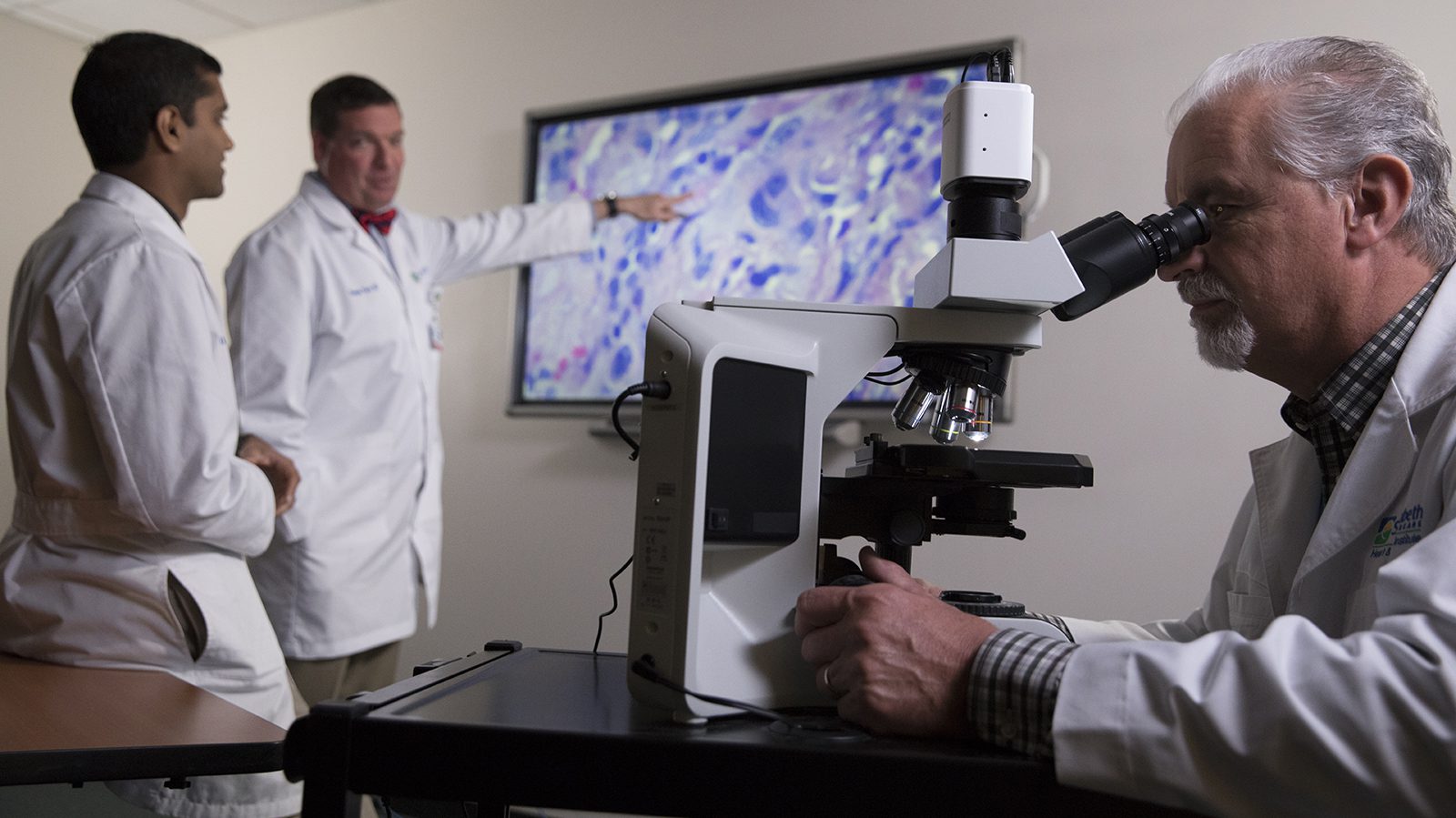Ovarian Cancer
The female reproductive system contains two ovaries, each about the size of an almond. The ovaries produce eggs and hormones. Ovarian cancer begins in the ovaries. Early-stage cancer that is confined to the ovaries is more easily treated than if it has spread to the pelvis and abdomen.
Types of ovarian cancer include:
Causes of Ovarian Cancer
The cause of ovarian cancer is unknown, but the risk of developing the disease is higher if you have any of the known risk factors.
Risks Factors for Ovarian Cancer
Approximately 10 to 15% of people who get ovarian cancer have a specific mutation in their DNA that increases their risk of getting ovarian cancer. Our hereditary cancer program can provide important information that allows us to identify cancer early, when it is most treatable, and plan your treatment.
Ovarian cancer can be associated with the following risk factors:
- Age.
- Family history of ovarian cancer.
- Inherited gene mutations BRCA1 and BRCA2.
- Long-term use of estrogen hormone replacement.
- Menstruation beginning at an early age.

Make an appointment
For more information, please contact your oncologist or the Cancer Care Center at (859) 301-2237, option 2.
Symptoms of Ovarian Cancer
Ovarian cancer often has no symptoms. If it has spread, symptoms include:
- Abdominal bloating or swelling.
- Changes in bowel habits, such as constipation.
- Discomfort in the pelvis area.
- Feeling full after eating a small amount.
- Frequent need to urinate.
- Unexpected weight loss.
Diagnosis of Ovarian Cancer
If your doctor suspects that you have ovarian cancer, they may run tests to determine the stage of cancer to develop the best treatment plan. These tests include:
- Blood tests to check genetic makeup and blood markers.
- CT scan.
- Exploratory surgery.
- MRI.
- PET/CT scan.
- Pelvic exam.
If you’ve been diagnosed with ovarian cancer, we can provide a second opinion and present treatment options.
Treating Ovarian Cancer
At St. Elizabeth Healthcare, we believe in caring for you, not just treating your cancer. Our holistic approach means we combine cancer treatment with working to minimize side effects and help you manage them. Our goal is to make you as comfortable as possible while we use innovative approaches to treat your cancer.
Your treatment plan for ovarian cancer usually begins with surgery. We have expertise in robotic-assisted surgery and minimally invasive surgical techniques. Our surgeons are experts in diagnosing and treating gynecologic cancers.
Depending on the stage of your cancer and whether it has spread, your treatment may include:
Preventing Ovarian Cancer
There is no way to prevent ovarian cancer, but you can lower your risk by:
- Breastfeeding.
- Giving birth.
- Having your ovaries removed.
Your Cancer Care Team
The team includes medical oncologists specializing in immunotherapy and precision medicine, surgical oncologists, radiation oncologists, interventional radiologists, thoracic surgeons, pain management specialists, genetic counselors, pathologists, nutritionists, pharmacists, nurses and support staff. They work together to create a treatment plan that’s just right for you.


